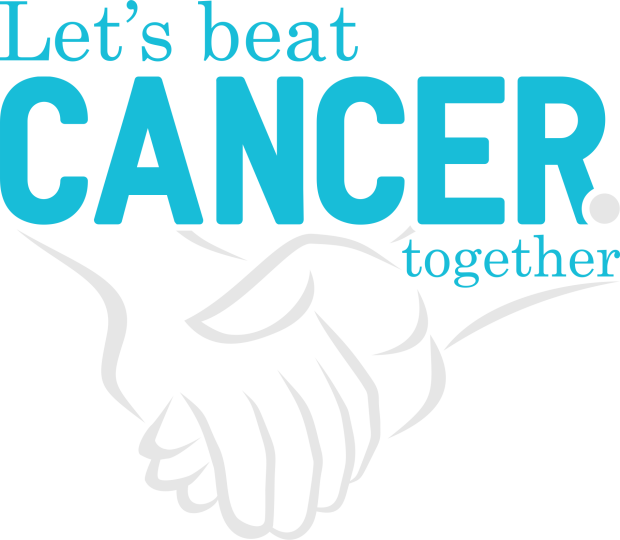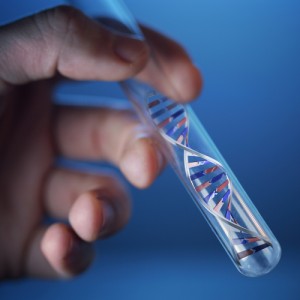Genetic testing for BRCA1 and 2
Fundraising campaign by
Maryam Ajikobi
-
US$16.00raised of $21,000.00 goal goal
Campaign Story
Fundraising for Genetic testing for BRCA1 and 2 genes for Cancer patients and their family member(s) in Nigeria
HumGene Limited is a registered genetics company in Nigeria. HumGene Limited was incorporated in 2016 as a limited liability company registered with corporate affairs commission (RC 1372170). HumGene specializes in genetic testing for genetic disorders, Genetic counselling, Genetic counselling training, DNA extraction, forensics, Genetic ancestral testing, Genetic Research, Paternity testing etc. Our mission is to make clinical testing available to people with genetic conditions and their families and creating awareness about genetic disorders and how they can be prevented/treated.
HumGene has decided to raise funds to give free genetic testing to cancer survivors/ or family members that might be at risk of inheriting the BRCA genes that causes inherited cancer of the breast, ovaries and Prostate cancer in Nigeria.Breast cancer has been affecting millions of women in Nigeria and this can be prevented by early detection through genetic testing.
The genetic testing cost #80,000.00 for each person. We are looking at raising funds for at least 100 people. Our fundraising is set at #8000,000.00. As prevention is better than cure.
What are BRCA1 and BRCA2?
BRCA1 and BRCA2 are human genes that produce tumor suppressor proteins. These proteins help repair damaged DNA and, therefore, play a role in ensuring the stability of the cell’s genetic material. When either of these genes is mutated, or altered, such that its protein product either is not made or does not function correctly, DNA damage may not be repaired properly. As a result, cells are more likely to develop additional genetic alterations that can lead to cancer.
Specific inherited mutations in BRCA1 and BRCA2 increase the risk of female breast and ovarian cancers, and they have been associated with increased risks of several additional types of cancer. Together, BRCA1 and BRCA2 mutations account for about 20 to 25 percent of hereditary breast cancers and about 5 to 10 percent of all breast cancers. In addition, mutations in BRCA1 and BRCA2 account for around 15 percent of ovarian cancers overall. Breast and ovarian cancers associated with BRCA1 and BRCA2 mutations tend to develop at younger ages than their nonhereditary counterparts.
A harmful BRCA1 or BRCA2 mutation can be inherited from a person’s mother or father. Each child of a parent who carries a mutation in one of these genes has a 50 percent chance (or 1 chance in 2) of inheriting the mutation. The effects of mutations in BRCA1 and BRCA2 are seen even when a person’s second copy of the gene is normal.
How much does having a BRCA1 or BRCA2 gene mutation increase a woman’s risk of breast and ovarian cancer?
A woman’s lifetime risk of developing breast and/or ovarian cancer is greatly increased if she inherits a harmful mutation in BRCA1 or BRCA2.
Breast cancer: About 12 percent of women in the general population will develop breast cancer sometime during their lives. By contrast, according to the most recent estimates, 55 to 65 percent of women who inherit a harmful BRCA1 mutation and around 45 percent of women who inherit a harmful BRCA2 mutation will develop breast cancer by age 70 years.
Ovarian cancer: About 1.3 percent of women in the general population will develop ovarian cancer sometime during their lives. By contrast, according to the most recent estimates, 39 percent of women who inherit a harmful BRCA1 mutation and 11 to 17 percent of women who inherit a harmful BRCA2 mutation will develop ovarian cancer by age 70 years.
It is also important to note that other characteristics of a particular woman can make her cancer risk higher or lower than the average risks. These characteristics include her family history of breast, ovarian, and, possibly, other cancers; the specific mutation(s) she has inherited; and other risk factors, such as her reproductive history. However, at this time, based on current data, none of these other factors seems to be as strong as the effect of carrying a harmful BRCA1 or BRCA2 mutation.
What other cancers have been linked to mutations in BRCA1 and BRCA2?
Harmful mutations in BRCA1 and BRCA2 increase the risk of several cancers in addition to breast and ovarian cancer. BRCA1 mutations may increase a woman’s risk of developing fallopian tube cancer and peritoneal cancer. Men with BRCA2 mutations, and to a lesser extent BRCA1 mutations, are also at increased risk of breast cancer. Men with harmful BRCA1 or BRCA2 mutations have a higher risk of prostate cancer. Men and women with BRCA1 or BRCA2 mutations may be at increased risk of pancreatic cancer. Mutations in BRCA2 (also known as FANCD1), if they are inherited from both parents, can cause a Fanconi anemia subtype (FA-D1), a syndrome that is associated with childhood solid tumors and development of acute myeloid leukemia. Likewise, mutations in BRCA1 (also known as FANCS), if they are inherited from both parents, can cause another Fanconi anemia subtype.
Who should consider genetic testing for BRCA1 and BRCA2 mutations?
· Because harmful BRCA1 and BRCA2 gene mutations are relatively rare in the general population, most experts agree that mutation testing of individuals who do not have cancer should be performed only when the person’s individual or family history suggests the possible presence of a harmful mutation in BRCA1 or BRCA2.
· Breast cancer diagnosed before age 50 years
· Cancer in both breasts in the same woman
· Both breast and ovarian cancers in either the same woman or the same family
· Multiple breast cancers
· Two or more primary types of BRCA1- or BRCA2-related cancers in a single-family member
· Cases of male breast cancer
When an individual has a family history that is suggestive of the presence of a BRCA1 or BRCA2 mutation, it may be most informative to first test a family member who has cancer if that person is still alive and willing to be tested. If that person is found to have a harmful BRCA1 or BRCA2 mutation, then other family members may want to consider genetic counseling to learn more about their potential risks and whether genetic testing for mutations in BRCA1 and BRCA2 might be appropriate for them.
If it is not possible to confirm the presence of a harmful BRCA1 or BRCA2 mutation in a family member who has cancer, it is appropriate for both men and women who do not have cancer but have a family medical history that suggests the presence of such a mutation to have genetic counseling for possible testing.
What does a positive BRCA1 or BRCA2 genetic test result mean?
BRCA1 and BRCA2 gene mutation testing can give several possible results: a positive result, a negative result, or an ambiguous or uncertain result.
A positive test result indicates that a person has inherited a known harmful mutation in BRCA1 or BRCA2 and, therefore, has an increased risk of developing certain cancers. However, a positive test result cannot tell whether or when an individual will actually develop cancer. For example, some women who inherit a harmful BRCA1 or BRCA2 mutation will never develop breast or ovarian cancer.
A positive genetic test result may also have important health and social implications for family members, including future generations. Unlike most other medical tests, genetic tests can reveal information not only about the person being tested but also about that person’s relatives:
Both men and women who inherit a harmful BRCA1 or BRCA2 mutation, whether or not they develop cancer themselves, may pass the mutation on to their sons and daughters. Each child has a 50 percent chance of inheriting a parent’s mutation.
If a person learns that he or she has inherited a harmful BRCA1 or BRCA2 mutation, this will mean that each of his or her full siblings has a 50 percent chance of having inherited the mutation as well.
What does a negative BRCA1 or BRCA2 test result mean?
A negative test result can be more difficult to understand than a positive result because what the result means depends in part on an individual’s family history of cancer and whether a BRCA1 or BRCA2 mutation has been identified in a blood relative.
If a close (first- or second-degree) relative of the tested person is known to carry a harmful BRCA1 or BRCA2 mutation, a negative test result is clear: it means that person does not carry the harmful mutation that is responsible for the familial cancer, and thus cannot pass it on to their children. Such a test result is called a true negative. A person with such a test result is currently thought to have the same risk of cancer as someone in the general population.
If the tested person has a family history that suggests the possibility of having a harmful mutation in BRCA1 or BRCA2 but complete gene testing identifies no such mutation in the family, a negative result is less clear. The likelihood that genetic testing will miss a known harmful BRCA1 or BRCA2 mutation is very low, but it could happen. Moreover, scientists continue to discover new BRCA1 and BRCA2 mutations and have not yet identified all potentially harmful ones. Therefore, it is possible that a person in this scenario with a "negative" test result actually has an as-yet unknown harmful BRCA1 or BRCA2 mutation that has not been identified.
What is required for Genetic testing?
DNA (from a blood saliva or buccal swab sample) is needed for mutation testing. The sample is sent to a laboratory for analysis. It usually takes about a month to six weeks to get the test results.
Organizer
- Maryam Ajikobi
- Campaign Owner
Donors
- Anonymous
- Donated on Oct 19, 2017
- Anonymous
- Donated on Oct 18, 2017
- Maryam Ajikobi
- Donated on Oct 09, 2017
No updates for this campaign just yet
Donors & Comments
- Anonymous
- Donated on Oct 19, 2017
- Anonymous
- Donated on Oct 18, 2017
- Maryam Ajikobi
- Donated on Oct 09, 2017





